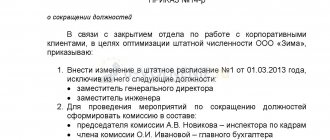If you want to congratulate a teacher, doctor or official on any holiday, you have to choose a gift wisely. After all, there is a risk that the gift will be perceived as a bribe. And this threatens real life for both the donor and the recipient. We suggest you figure out who and what can be presented on the occasion of a holiday or other event, and what gift is not a bribe under the law. To do this, let us turn to the Civil and Criminal Code, as well as to legislative acts related to state and municipal service and the fight against corruption.
How you can't give gifts
The Constitution enshrines the child's right to free pre-school, basic general and secondary vocational education. All “extortions” are illegal, and gifts are solely at the request of the parents. And in the latter case there are a number of nuances.
Teacher Gifts Law
Yes, there are certain restrictions. There is no separate law on gifts to teachers in 2021, but Article 575 of the Civil Code of the Russian Federation (“Prohibition of Gifts”) states that “donations are not allowed, with the exception of ordinary gifts, the value of which does not exceed three thousand rubles... to employees of educational organizations, medical organizations, organizations providing social services and similar organizations...”
Maximum amount of a gift to a teacher by law
This means that the maximum amount of a gift to a teacher according to the corruption law is 3,000 rubles, otherwise it may be regarded as a bribe!
Sometimes they also refer to a bill that allegedly states that teachers cannot be given anything other than flowers and stationery. But in fact, this bill is about officials who also often receive gifts. Therefore, parents have a much wider choice, the main thing is that the requirements of the Civil Code of the Russian Federation are not violated.
Important!
Currently, the law does not limit the number of gifts that can be presented to a teacher. Therefore, if parents want to give several items, then the “rule of 3000” applies to them separately. That is, each of these items should cost no more than 3,000 rubles.
But a gift from the class should also not be more than 3,000 rubles; in this case, it makes no difference how many donors chip in. It is impossible to multiply 3000 by the number of people participating in the fundraiser.
Is it possible to give money to a teacher? It is not recommended, since from the literal interpretation of the article of the Civil Code of the Russian Federation it follows that we are talking specifically about gifts, and money in an envelope can cause misunderstandings.
Keep in mind also that there are schools in which the administration has, in principle, prohibited teachers from accepting gifts from parents, even on holidays. Check in advance whether you will violate internal regulations by bringing a gift. Otherwise, the situation will turn out to be awkward and unpleasant for all parties. Here it no longer matters which gifts to the teacher are prohibited by law; it is better to focus on the internal rules.
Punishment for petty bribery
The second mandatory condition is of an alternative nature; in order to make a decision on exemption from criminal liability, there must be extortion of a bribe by an official, or the person, after committing a crime, must voluntarily report giving a bribe to the body that has the right to initiate a criminal case.
possible by phone or on the website. Initial consultations are held free of charge from 9:00 to 21:00 daily Moscow time. Questions received between 21:00 and 9:00 will be processed the next day.
For crimes related to corruption on an especially large scale (from a million), you can be imprisoned for up to 15 years. This, of course, does not cancel fines.
The rule allowing for the imposition of amounts that are multiples of the bribe received provides the judge with the opportunity to demand payment of fines in very large amounts. If they are paid on time, then the fine is immediately replaced with imprisonment.
Let's look at each point in more detail. The main criterion that determines a gift is the effect of surprise. The person who receives it should not know about the amount of the gift, and even more so should not extort a certain thing or amount from the donor.
What gifts can you give? What's the best way to protect yourself?
So, what gifts can you legally give to teachers? Here are recommendations on how to accurately choose the right gift.
- Buy a gift that is obviously cheaper than 3,000 rubles. Even if the excess is relatively small, this may be grounds for charges of bribery; it is better not to risk it.
- Try to choose gifts that do not raise doubts, even if these doubts are unjustified. For example, household appliances or electronics can cost completely differently, and even a cheap device sometimes looks like a very expensive one. It is not always possible to determine the real cost by eye.
- Keep your receipt. If your relationship with the teacher allows, hand over the check along with the gift so that the receiving party has proof in case something happens. You can put the check in a separate opaque envelope and ask not to open it, but just keep it just in case.
- If you are worried (or the teacher is worried), limit yourself to a pleasant souvenir. A bouquet of flowers and a personalized accessory (office, desktop...) will be an excellent compromise solution.
Proof
In order for the court to consider a bribery case and punish the offender, the court must be provided with convincing evidence of the fact of bribery.
Such evidence must be collected by the claimant. Since it is difficult for an ordinary person to do this, the plaintiff usually turns to law enforcement agencies.
In this case, it is necessary to prove the following:
- The person accused of a crime is an official.
- This person received a bribe.
- The person provided or intended to provide a service within the scope of his position in the service.
To prove the first point, law enforcement agencies only need to send a request to the bribe-taker’s workplace about his position, powers and official responsibilities.
To prove point 3, it is necessary and sufficient to provide documentary evidence. Video recordings, photographs, extracts can be used as it.
The most difficult is to prove point 2. For this, video recordings, voice recordings, photographs, testimony of witnesses, and a personal statement of the bribe-giver can be used.
All evidence must be legal. For example, citizens can only do so with the permission of the prosecutor. Therefore, such information received by the plaintiff on his own initiative will not be considered by the court.
As practice shows, when considering cases of bribes from traffic police officers or university teachers, recording on a video medium or voice recorder is often sufficient for the court.
In more complex cases, special actions by law enforcement agencies become necessary:
- marking banknotes for a bribe;
- organization of auditions;
- sending an official of the authorities as an intermediary;
- caught red-handed.
Police officers are prohibited from inciting a citizen to accept a bribe, since such actions induce him to commit a crime (Article 5 of Law No. 144-FZ).
How is a gift different from a bribe?
The difference between a gift and a bribe is that in the case of a bribe there is a fact of agreement. If material value is transferred to a teacher in exchange for some kind of service or concession (for example, a good grade in a quarter), this is already regarded as a manifestation of corruption.
To prevent anyone from suspecting that you are giving a bribe, give gifts “on occasion” (that is, to coincide with the holidays). And also be careful in the wording of the text of the postcard or accompanying note, if you attach one to the gift. Remember that if someone wants to harm a teacher and accuse him of corruption, even the most innocent words can be misinterpreted. If you are afraid that someone may harm your teacher, it is better to be safe.
A bribe in a significant, large and especially large amount - how much?
Responsibility under Art. 290 and 291 of the Criminal Code of the Russian Federation (receiving and giving a bribe, respectively) is punishable for accepting/giving a bribe in the amount of 10,000 rubles or more. Anything below this limit is qualified as petty bribery under Art. 291.2 of the Criminal Code of the Russian Federation. The answer to the question of what amount a bribe is made in a certain amount is contained in Note 1 to Art. 290 of the Criminal Code of the Russian Federation:
- significant amount of bribe - over 25,000 rubles;
- large - over 150,000 rubles;
- especially large - over 1,000,000 rubles.
About liability, as well as more details about how much a bribe is on a large scale, read the article Taking a bribe - what are the types and elements of the crime?
In practice, difficulties often arise when determining the size of a bribe as a qualifying criterion in cases where the transferred amount is a borderline value (exactly 25,000, 150,000 or 1,000,000 rubles).
However, note 1 to Art. 290 of the Criminal Code of the Russian Federation does not give rise to an alternative interpretation: a bribe is considered significant if its size/value exceeds 25,000 rubles. In other words, a bribe in the amount of 25,000 rubles. (150,000, 1,000,000 rubles) cannot be considered significant (large, especially large).
See, for example, the private ruling of the Oktyabrsky District Court of Ivanovo dated April 12, 2017 No. 1-44/2017 on a complaint against the actions of an investigator who incorrectly classified the receipt of a bribe in the amount of 25,000 rubles. according to Part 2 of Art. 290 of the Criminal Code of the Russian Federation.
Should you refuse gifts altogether?
If your school has a tradition of giving gifts on certain dates and you are generally expected not to ignore this tradition, there is no need to completely abandon it. You can limit yourself to a neutral and symbolic present, demonstrating your disposition.
And we advise you to follow the legislation in this area, because the rules for giving and accepting gifts are becoming stricter all the time, and what is permitted today may be prohibited tomorrow. We recommend that you update your existing information about restrictions before each holiday and take them all into account.
Follow the news, subscribe to the newsletter.
When quoting this material, an active link to the source is required.
Goals of bribe givers
Giving a bribe can be qualified based on the purpose
This qualification has important forensic significance, because if the briber achieves his legitimate goals, illegal activities may leave virtually no traces of a criminal act.
In this case, the official performs official actions for a bribe that do not go beyond the scope of his job description, and also do not entail any deviations or violations of the law. Under this condition of obtaining illegal benefits, it is very difficult to establish and record the criminal activity of the attacker. In order for an act to be considered criminal, the bribe-taker must go beyond the established scope of his official duties, thereby violating the law by his actions.
In the legal literature, the following goals of receiving a bribe are identified, which are pursued by the attacker:
- satisfaction of interests of third parties;
- satisfying the personal needs of the bribe giver, which are expressed in obtaining certain benefits or benefits for a bribe;
- satisfying the interests of a group of people.
When you don't have to pay
Tax on a given gift, regardless of its specific execution, occasion and other incidental circumstances, is not required to be paid in the following cases (Article 217):
- The gift is made in money or in the form of property (in kind), unless the latter falls into one of the following categories:
- vehicles;
- real estate;
- shares and other securities;
- shares, interests and other ways of participating in common assets.
In particular, tax will not have to be paid when delivering a sum of money in an envelope, expensive alcohol, flowers, jewelry, etc. (clause 18.1, first paragraph).
- The donors are close relatives of the recipient. In accordance with the list given in the Family Code, as well as comments on the Federal Tax Service website, this list includes:
- husband or wife of the recipient - if the marriage, at least formally, continues to be valid;
- native father and mother;
- native children;
- adoptive parent or adoptive mother;
- adapted children;
- brother or sister - both from father and mother, and from one of the parents;
- grandparent;
- grandson or granddaughter.
Thus, a gift from a father to a son, whatever its value, cannot be taxed - neither the donor nor the recipient will have to apply to the Federal Tax Service.
But if the first is an uncle, and the second is a nephew, the material value received free of charge turns into a taxable base, with all the ensuing consequences (clause 18.1, second paragraph).
- The total cost of a gift given by an individual entrepreneur or legal entity is up to 4,000 rubles (clause 28, second paragraph).
Today, this is an exhaustive list of cases in which the recipient may not pay tax on a gift - however, the inspector will not be able to prohibit him from transferring part of his funds to the budget.








